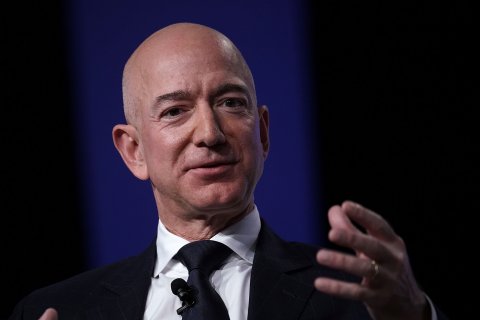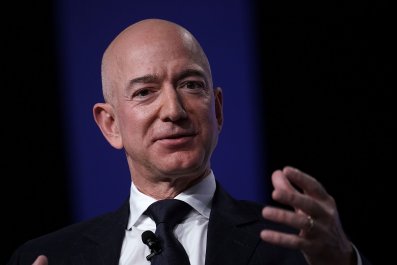TECHNOLOGY
Jeff Bezos is RightâAmazon is Too Big To Fail, Says Writer Who Profiled Company
"Amazon's drive for automation in everything from its warehouses and delivery vans is likely to lead to massive unemployment, and business and governments will have to work together to find solutions to that."

How Amazon's Bet on Autonomous Vehicles Can Help Protect Us from Viruses
What do you think is the single most important thing behind Amazon's success?
I've never seen a corporate culture so single-mindedly focused on doing whatever it takes to please the customer. A lot of companies say that, but Amazonians really believe it and act on it. Every time I interviewed someone at the company, the phrase "everything is for the customer" came up as if Amazon's smart computer scientists had hardwired their brains. Now they're applying that fanaticism to new industries like media, health care, finance, consumer electronics and advertising. Watch out.
Are you a Luddite? Or an early adopter of technology? Somewhere in between?
Before I started researching this book I had Luddite tendencies, but the project forced me to fill my house with a few Alexa Echos, a Google Home and an Apple HomePod. My wife hates talking to Alexa, but I like it. I think she's jealous.
Are you an online shopper? Your favorite sites?
I shop online too much. I know it, but I can't help it. I love to research products online and the majority of the time I end up back on Amazon to find what I needed. I like Crate and Barrel for furniture and household goods—they seem to have things Amazon doesn't. And of course, Harry & David for sending holiday presents.
Are you a Prime member?
Yes. The thing about Prime is that you get so used to the convenience of free, fast shipping that you don't even price-comparison shop. You just hit the Amazon "Buy" button.
Delivery times during the pandemic have become much longer and even many staples are unavailable. Will this have long-term implications once things return to normal?
When demand for online goods surged, Amazon had to scramble. In March and April, it hired 175,000 frontline workers and is rushing to implement new safety protocols. Amazon being Amazon, it will eventually figure it out. This e-commerce giant will come out of this crisis stronger.
What's next for you?
I'm looking for the next global business titan to profile, but there are not a lot out there like Bezos.
Read more
How Amazon's Bet on Autonomous Vehicles Can Help Protect Us from Viruses
Request Reprint & Licensing
Submit Correction
View Editorial Guidelines
To read how Newsweek uses AI as a newsroom tool, Click here.


